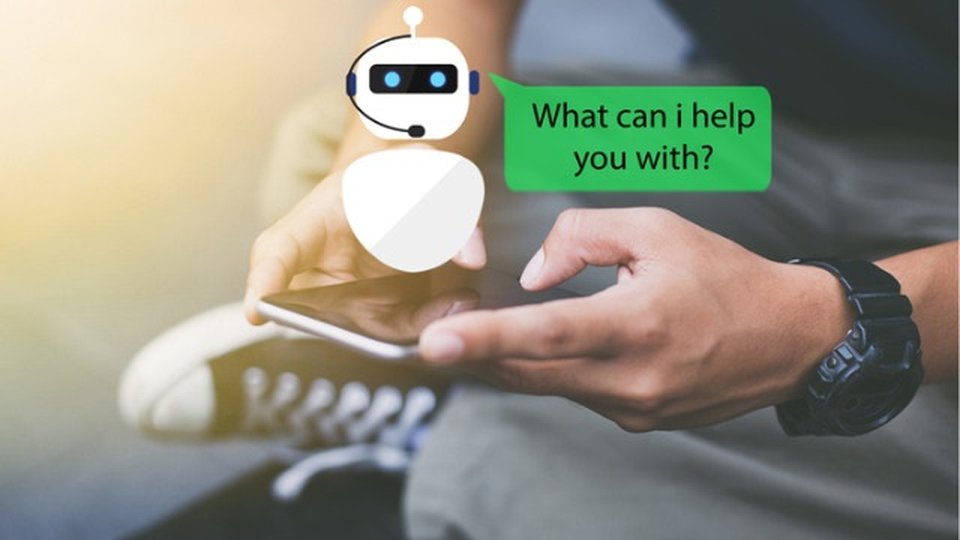Technology
Where are chatbots heading in 2020? Everywhere
Priya Iyer, chairman and CEO, Vee24, shares insight on where chatbots fit into the customer experience and why the technology is becoming a critical piece of retail, from communications to meeting customer expectations.

May 15, 2020 by Priya Iyer
chatbots are becoming more sophisticated, working themselves into the mainstream in new ways almost daily. From immediate access to banking information to contacting a live medical professional, businesses and consumers are beginning to consider the chatbot as a critical piece of their communication pipelines, essential to meet customer expectations and business productivity.
In 2019, 67% of consumers used a chatbot for online support at least once. Because chatbots are available to provide service 24 hours a day, that number will only grow larger as consumers come to expect immediate assistance. In the next six to 12 months, 85% of organizations are expected to have implemented a chatbot and 30% of customer service experiences will be handled by chatbot.
Curious about how businesses and service providers will implement these new systems? Will bots replace even more customer service functions, or take an increasing role in generating leads? Here are some ideas to consider.
Humanized and automated customer service
Any engagement with customers must be conversational, and effective conversations can only happen if bots can understand customers. Currently, 59%t of implemented chatbot are centered around poorly built, unable to understand human requests. This means most chatbot are not built properly and become quickly overwhelmed when tasked with too much to do. For instance, the chatbot may be able to answer a question of a business operating hours, but if asked for help with an existing order, it doesn't respond properly. This negative scenario can be averted with a well-designed, well-built and trained chatbot that understands extensive customer requests, recognizes different online dialects and is able to evolve. With the proper AI and an in-depth plan the chatbot can become more conversational, resulting in a more human-like experience
Examples of experiences are:
● Seamlessly transferring customers to live agents.
● Experiencing engaging welcome messages.
● Answering FAQs.
● Scheduling callbacks.
After-hours sales
Chatbots are quickly moving beyond facilitating the customer's online experience, increasingly having a larger, more direct impact on business' revenue. bots can be taught to speak to specific sales and marketing campaigns, and landing pages, and to sell specific products.
Consumers are online 24 hours a day and can land on a website from many different origins. Whether it is a targeted marketing campaign, referral, SEO, or just an organic search, consumers typically have questions about the products, services or information being offered. Having a bot that greets customers quickly, is able to answer FAQs and product-specific questions leads to better customer experiences, which ultimately leads to sales. Brands with superior customer service experience bring in 5.7 times more revenue, and 72 percent of consumers say a disconnected experience would make them change brands.
Examples of heightened customer service experiences with bots are:
● Answering questions about a car model.
● Processing a return.
● Scheduling customer support callback.
● Opening a help ticket.
● Recommending the perfect watch.
● Breaking down different insurance plans.
● Helping a customer find the right bank or investment account.
Bots that accomplish marketing and branding goals
Creating and developing a dynamic brand is a marketer's most important goal. Repeated positive experiences help create customer loyalty and a healthy brand image. When consumers interact with a chatbot, 80% report having a positive experience. Customers are willing to interact with a chatbot, and that touchpoint is an excellent opportunity to positively engage them with a brand.
The chatbot's 24/7 availability makes them a perfect marketing and lead-generating tool. More than 64% of customers see 24-hour service as chatbot's biggest advantage. Well-built chatbots quickly collect user data and turn visitors into leads, helping reach marketing goals.
Finally, chatbots help increase brand loyalty. Harvard Business Review research found that by reducing customer effort, an organization can significantly increase customer loyalty and retention. By using a chatbot to not only market to customers, but actively reduce their effort, chatbots are an essential spokesperson for established and emerging brands.
Chatbots will continue to evolve with analytics
Analytics will continue to play a crucial role in how chatbots are developed, iterated and how their success is measured. Analytics are used to teach chatbots to have a deeper understanding of customers and provide them with an experience that is relevant to them. The “build-measure-learn” method focuses on a feedback loop that's goal is to turn uncertainties, assumptions and risks into knowledge or “sure things” that will eventually guide organizations and business toward progress This method is key to the development of a chatbot that is agile, and can cater to specific customer nuances.
Because it isn't possible to predict how each customer will interact with a chatbot — what they say or understand, for instance — focusing on analytics, and iterating on them, allows the chatbot to be built to understand an impressive 98% of customer requests.
Conclusion
The opportunities for customer service, brand development, after-hours sales, and lead generation are growing rapidly in our current online climate. In the next several months, we will see live engagement become even more relevant in business functions and consumer applications as customers and businesses experience life increasingly from their devices, 24 hours a day.
Out of necessity, businesses will be pressured to have important tools and information available for their customers, and how readily they can provide that will impact the customer journey and their bottom line, revolutionizing how the world interacts online. This evolution will continue to impact digital channels like the web and mobile, with organizations embracing chatbots generating more leads seeing their NPS scores increase, and growing revenue in the short and long terms.
Priya Iyer is chairman and CEO at Vee24.
About Priya Iyer
Priya is CEO of Vee24, an Intelligent Conversational Experience platform company. Priya has won New England Entrepreneur of the Year; ranked on top 100 Entrepreneurs by the Boston Globe and Top Women Leaders by TSR. Priya holds a bachelors and masters in Computer Science and an MBA from MIT Sloan.
 ChatGPT
ChatGPT Grok
Grok Perplexity
Perplexity Claude
Claude




